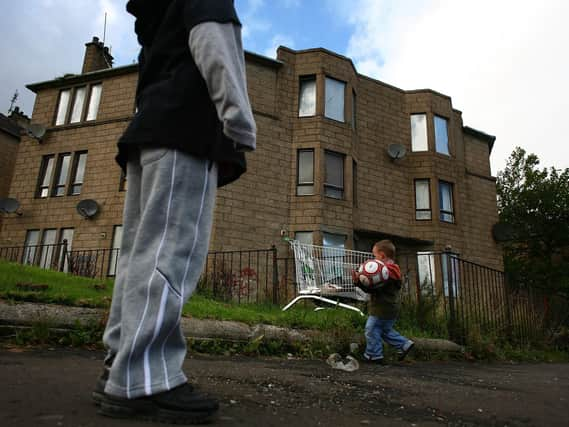'Severe risk' of children being swept further into poverty, charity warns, as region suffers increase


The End Child Poverty coalition said some working families had been pushed to breaking point by a steady four-year rise in child poverty, and has called on the Government to commit to an ambitious strategy to end child poverty in the aftermath of the coronavirus pandemic.
Hull and the East Riding saw the biggest increases in child poverty over the 2014/15 to 2018/19 period, and two constituencies in Leeds were among the 20 areas in the country with the greatest rise.
Advertisement
Hide AdAdvertisement
Hide AdRegionally, 23.4 per cent of children were living in poverty in 2018/19, and increase of 4.2 per cent.
The only regions with higher numbers living in poverty were the north east, at 23.7 per cent, and West Midlands, at 23.8 per cent.
Across the country, the North East of England has seen the biggest increase in child poverty - 6.5 per cent.
Campaigners said they fear the added impact of coronavirus on household budgets could worsen the situation, and urged the Government to increase the amount of money in families’ pockets.
Advertisement
Hide AdAdvertisement
Hide AdChair of End Child Poverty, Anna Feuchtwang said some children had been “cut adrift” by the Government.
She said: “We may all be experiencing the storm of Coronavirus together, but we are not all in the same boat.
“Our country’s children are now at severe risk of being swept deeper into poverty as a result of the pandemic and lockdown. This is why we are asking the government to strengthen the social security system which is there to hold us steady during tough times, by immediately increasing household income for those least well-off.”
TUC regional secretary Bill Adams said: “Child poverty has been pushed up by cuts to support for families, and by falling real wages for nurses, teachers and our other amazing frontline workers. Now the coronavirus outbreak risks plunging many more children into poverty.
Advertisement
Hide AdAdvertisement
Hide Ad“We need the right economic plan for recovery. The government must get wages rising again and provide a proper safety net to keep all children out of poverty.”
Labour MP Richard Burgon, for Leeds East, which has seen one of the highest rises in child poverty in the country, said ordinary people were paying the price for the banking crisis, which led to record austerity measures.
He said: “We can't allow the government’s ‘settling of the bill’ in the aftermath of the Coronavirus crisis to mean further attacks on living standards in areas like East Leeds.”
In East Riding, over a third of children, 34.7 per cent, were in poverty in 2018/19, a rise of 5.5 per cent on four years earlier, and the highest proportion in Yorkshire.
Advertisement
Hide AdAdvertisement
Hide AdEast Riding of Yorkshire Council’s portfolio holder for children, young people and education, Coun Julie Abraham said the “national concern” of increased child poverty was reflected locally.
It was investing in children’s centres and programmes which address the underlying causes of poverty, she said.
"Our aim is to break cycles of poverty by tackling root causes and raising aspiration within families," she added.
Hull also saw a 5.5 per cent increase, from 17.4 to 22.9 per cent.
Advertisement
Hide AdAdvertisement
Hide AdCounHester Bridges, Chair of Hull Health and Wellbeing Board said: “Hull was in the process of establishing a Fairness Commission prior to Covid-19 and the intention is to commence this as soon as is practicable, but with a renewed focus on ensuring the city’s recovery is underpinned by the need to actively tackle fairness and social, economic and health inequalities.
“Child poverty is a central theme for the commission and the new and emerging intelligence, together with the local work to better understand the impacts of the pandemic, will be used by the commission to identify those areas of work we can collectively undertake across agencies to address poverty in children and in our communities.”
A Government spokesman said: “This Government understands the challenges many are facing which is why we injected £6.5bn into the welfare system, including increasing Universal Credit and Working Tax Credit by up to £1,040 a year, as well as rolling out income protection schemes, mortgage holidays and additional support for renters.
“We currently spend a record £95 billion a year on our safety net welfare system and remain committed to supporting the most vulnerable in society throughout the current emergency and beyond.”
Comment Guidelines
National World encourages reader discussion on our stories. User feedback, insights and back-and-forth exchanges add a rich layer of context to reporting. Please review our Community Guidelines before commenting.